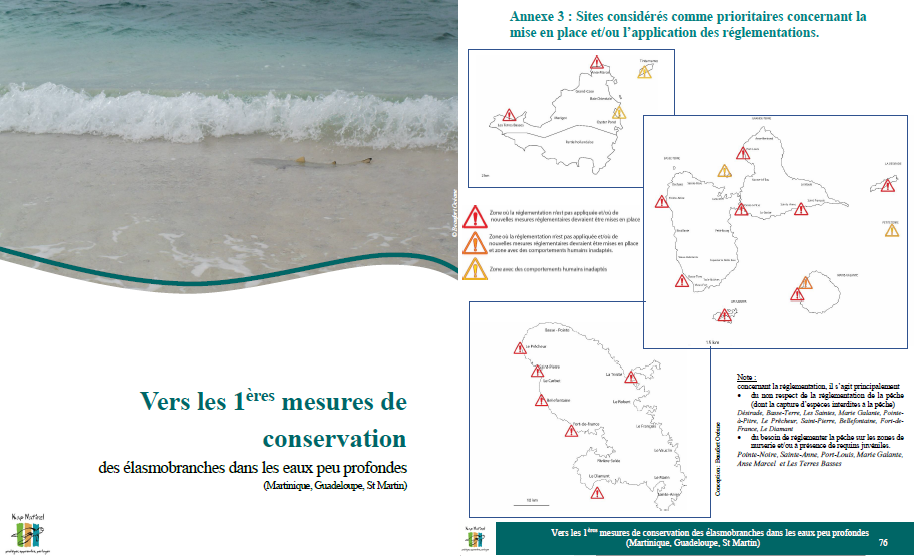With the presence of critically endangered species (i.e. Caribbean numbfish, Narcine bancroftii), of endemic Caribbean species (i.e. the Caribbean reef shark, Carcharhinus perezi), and of many nurseries and breeding areas, the French West Indies have an important role in the conservation of shark and ray populations.
However, the protection of species that have a negative image remains a challenge, even more so due to the accidents that take place each year on the French island of La Reunion.
This project aims to propose the first measures for the conservation of sharks and rays: adaptation of fishing regulations, development of sustainable tourism practices, ect.
